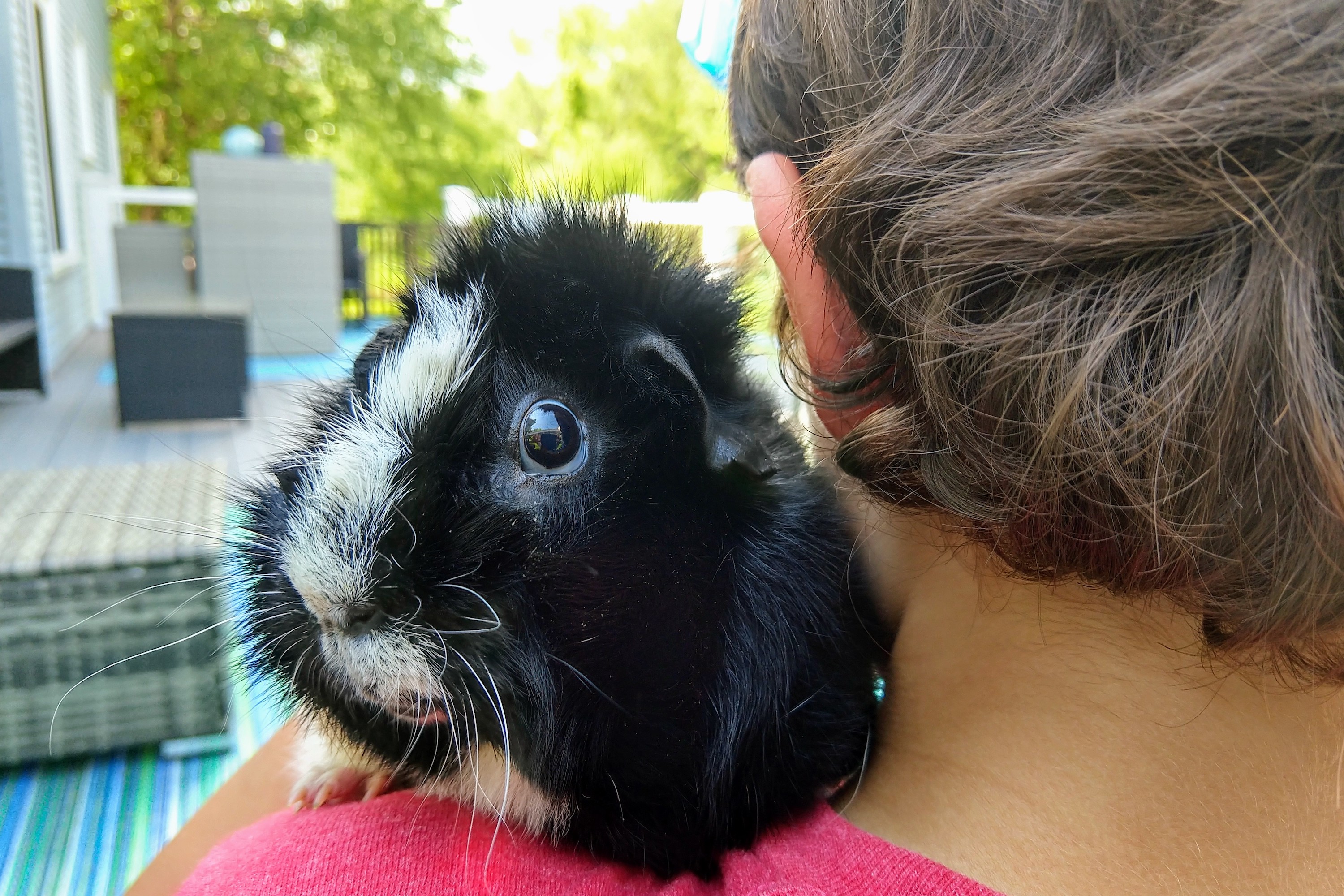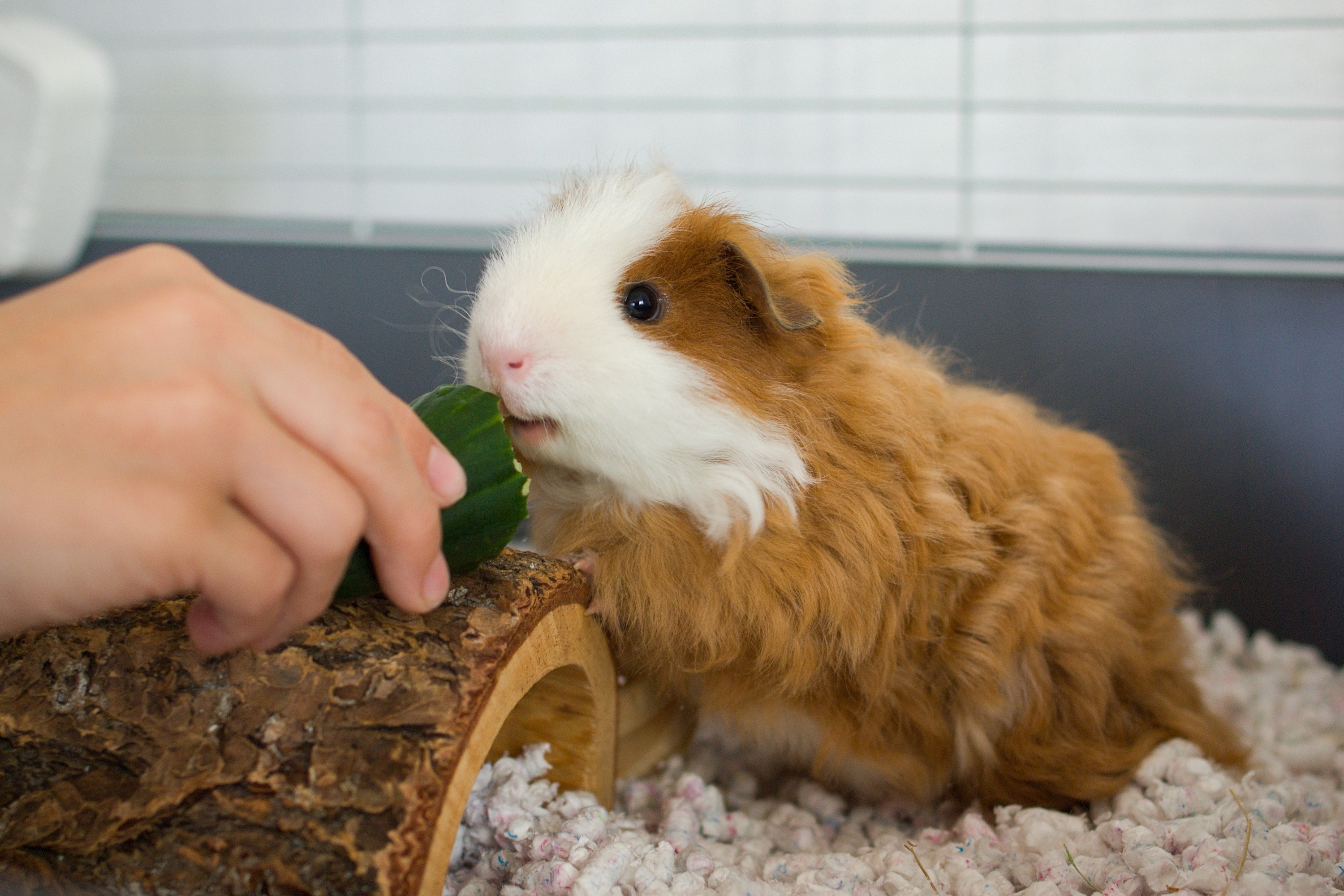When you bring home a pet, you agree to take care of all their needs: heap on attention, supply plenty of food, and scoop the poop. And in addition to being chatterers, guinea pigs are poopers, big ones. If there’s one thing they know how to do, it’s deliver their excrement, everywhere and always. Unfortunately, this skill doesn’t also come with good cleaning abilities, so you’re stuck with the pickup. Don’t let this deter you, though. These sweet little guys make great companions, and you can teach them to go a little more conveniently if you work at it. But why do guinea pigs poop so much? Don’t worry too much if it feels like you have a never-ending supply of guinea pig dung; this is completely normal.

How much poop is normal for a guinea pig?
We don’t want to alarm you, but some owners report cleaning up 100 pellets per day per pet. Also, since they need to stick together in pairs or small herds, you get the muck of multiple animals in one cage. That’s A LOT of poop and A LOT of man-hours to remove it. Expect to give the cage a once-over at least twice a day, morning and night when you feed and replace water. To help you along, the first thing you want to invest in is a vacuum. That will speed up the process so you aren’t spending literally all your time grabbing bits of pig leavings off bedding. Don’t put it off either or the cage will get extra dirty and start to smell.
Why do guinea pigs poop so much?
In order to keep their teeth worn down, their bellies full, and their nutrient levels high, these pets eat constantly. Little rodent bodies require lots of calories to go, so they consume food most of their waking hours (oh, and sleep 14 hours a day, too). With plenty of roughage going in, you’ll see plenty of droppings going out. Having that hay around all the time actually keeps their digestion in check, so while it leads to lots of surprises for you to discover, this is how we want it to be. Never cut down on your piggie’s food even if you feel like he’s eating too much. Report any changes in food consumption to the vet, though, as that could mean he’s sick.
What should guinea pig poop look like?
We know that there should be a lot of doo-doo coming from your pigs and you want to keep track of it. That makes it easy to get a good idea of what their droppings should look like. Look for an oval, darkish brown, and relatively un-smelly turd. Gut and digestive problems give you an early warning sign that something is not quite right with your animal. Diarrhea, light-colored poop, or bloody poop means a trip to the vet should be added to the calendar. Keep in mind, they do eat their own feces for extra nutrition, so don’t panic (or try to stop them) if you see that happen.

How do I stop my guinea pig from pooping everywhere?
Sadly, your GPs don’t discriminate much when selecting a spot to relieve themselves. They might go on you or even in piles of their food. However, if you note an area in the cage that seems particularly appealing as a bathroom, you can encourage them to mostly potty there. Set up a small litter box (but big enough for one pig to rest in it comfortably) and work on training them to use it. Once you’ve placed it in a specific location, reward your piggies copiously for leaving their excreta in the box.
Final thoughts on guinea pig poop
You might get overwhelmed by your guinea pigs’ poops when you first bring them home, but you can get into a routine quickly. Always make sure to maintain a consistent amount of hay and water so that they don’t develop digestive problems. In addition to vacuuming, you need to deep-clean the cage at least once per week. Too much pee and poop will contaminate your pet’s cage and could cause him to get sick. Staying on top of the cleanup is really the only way to prevent it from getting overwhelming and out of control, which is why we recommend daily maintenance. Guinea pigs will never stop being poop factories, but at least you won’t have to look at it.
Editors' Recommendations
- A simple guide to what to feed tadpoles in your aquarium
- Is my rabbit pregnant? 5 telltale signs you should know
- What you need to know about sugar gliders before you get an exotic pet
- Bunny care 101: If Easter inspires you to adopt a rabbit, read this first
- Are female betta fish worth it? Here’s why you should consider getting one of these pretty fish




